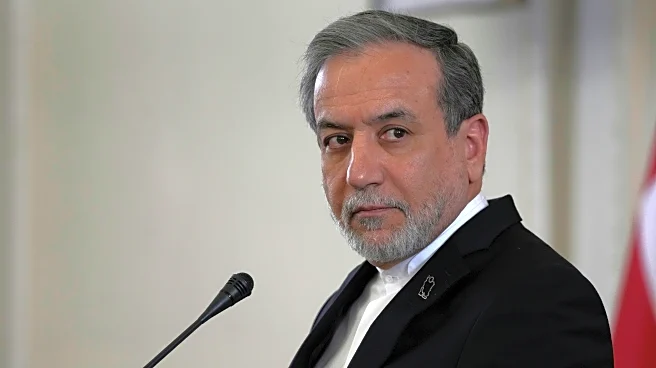What's Happening?
Tesla's board has introduced a $1 trillion compensation package for Elon Musk, contingent on achieving ambitious milestones over the next decade. This package could potentially grant Musk up to 29% voting control of the company. The plan ties Musk's rewards to achieving a market cap of $8.5 trillion, delivering 12 million vehicles annually, and producing 1 million Optimus robots by 2035. These targets reflect Tesla's ambition to lead in electric vehicles, autonomous mobility, and industrial robotics. However, the feasibility of these goals is under scrutiny, especially given Tesla's recent production and revenue declines. In 2024, Tesla's automotive revenue fell by 6% to $77.07 billion, and the global EV market is projected to grow by only 1.3% in 2025, a significant drop from the previous year's growth rate.
Why It's Important?
The compensation package is a high-stakes bet on Tesla's future in AI and robotics. If successful, it could solidify Tesla's dominance in these sectors, offering substantial returns to shareholders. The autonomous driving market, projected to grow significantly, presents a lucrative opportunity. However, the package has raised governance concerns, particularly regarding Musk's potential increased influence and the lack of performance-based vesting criteria. Critics argue this could lead to short-term risk-taking, while supporters see it as a necessary retention tool. The outcome of this package could influence investor confidence and Tesla's market position amid regulatory and competitive challenges.
What's Next?
Tesla's ability to meet these ambitious targets will be closely watched by investors and industry analysts. The company's success in scaling production and innovation will be critical. Regulatory hurdles, particularly for autonomous technology, and competition from other automakers, especially from China, could impact Tesla's progress. The governance structure and Musk's leadership will also be under scrutiny, as stakeholders assess the balance between innovation and sustainable growth.
Beyond the Headlines
The package highlights broader issues of executive compensation and corporate governance in the tech industry. It raises questions about the balance of power within companies and the role of visionary leaders in driving innovation. The outcome of Tesla's strategy could set precedents for how tech companies structure executive incentives and manage shareholder expectations in rapidly evolving markets.










